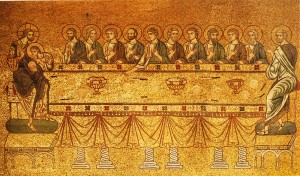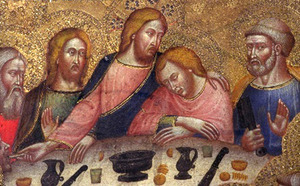 I love the gospel readings for the month of August because they give us the eucharistic theology of Divine Presence and the Divine Pledge for Eternal Life. These readings are known as the Bread of Life discourse taken from the Gospel of Saint John (chapter 6). You might say that the readings from Saint John’s gospel offers a timely reflection and orientation for eucharistic coherence. They indeed do, and this is no small gift these days when you hear more disagreement of what the Holy Eucharist is and why we receive Him. Faith informs me that sacramental Communion is Jesus Himself.
I love the gospel readings for the month of August because they give us the eucharistic theology of Divine Presence and the Divine Pledge for Eternal Life. These readings are known as the Bread of Life discourse taken from the Gospel of Saint John (chapter 6). You might say that the readings from Saint John’s gospel offers a timely reflection and orientation for eucharistic coherence. They indeed do, and this is no small gift these days when you hear more disagreement of what the Holy Eucharist is and why we receive Him. Faith informs me that sacramental Communion is Jesus Himself.
Whom do we receive in Holy Communion?
The question of what it means to be fed by the Bread of Life is not only a question for Holy Thursday, Corpus Christi or on the feast days of “eucharistic saints” like Saint Peter Julian Eymard. Today, the 19th Sunday Through the Church Year gives us the pericope that records the words of Jesus, and it is quite clear of who Jesus is and what the point is: “I am the bread that came down from heaven.” He also tells us: “I say to you, whoever believes has eternal life.”
Here is a paragraph from a Sermon by Eutychius of Constantinople:
No one, then, after the sacramental sacrifice and the holy resurrection, should have any doubt regarding the incorruptible, immortal, holy, and life-giving body and blood of the Lord. Once infused into the sacred elements through the liturgical rites, they communicate their own properties no less than do the aforementioned examples. They are wholly present in every part, for then the Lord’s body dwells corporally, that is to say, substantially, all the fullness of the divine nature of the Word of God. The breaking of this precious bread signifies his sacrificial death, and so he spoke of the passover as something to be longed for because it was to bring us salvation, immortality, and perfect knowledge.”

